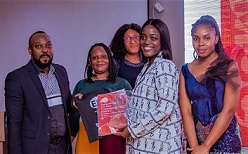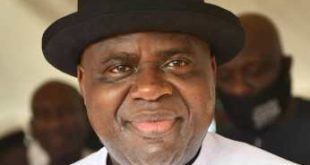… Health Commissioner Promises Govt Intervention in PHCs
By Paul Williams
“Oil-producing communities are key to Nigeria’s economic development. By bearing the
brunt of oil extraction – loss of diversity and other natural productive assets, they should benefit from strategic infrastructural developments to compensate for manifest and latent consequences of oil exploration.”
“Contrastingly,” according to the chief executive officer of Connected Development (CODE), Hamzat Lawal, “this is not so.”
An attempt, therefore, to take stock of social infrastructure in oil-producing communities in Rivers State, with a view to determining their felt-needs for policy intervention, thus formed the backdrop of a project tagged ‘Empowering Oil-Producing Communities (EMOC),’ initiated by CODE, with support from the Ford Foundation.
Taking a survey of social infrastructures schools, PHCs (primary health centres) and WASH (water, sanitation and hygiene) facilities in the communities, EMOC also sought to build the capacity of leaders in oil-rich communities to seek for accountability in the implementation of resources and projects allocated to them.
The ‘Performance Review’ of the EMOC project, after three years of its implementation, was presented last Friday in Port Harcourt before a gathering of community representatives, media and civil society actors, and government officials, which included the Rivers State commissioner for Health, Dr. Adaeze Chidinma Oreh, and the executive chairman, Universal Basic Education Commission (UBEC), Ven Dr. Fyneface Akeh.
CODE’s communications manager, Stephen Akinfala, standing in for the chief operations officer, Ijeoma Oforka, said “the project seeks to empower community people to hold their government accountable, for them to provide the service that is needed for their community.
“In some of the communities, we realized that there were issues with the state of the primary health centers and schools. We are here today, with critical stakeholders from the government and community representatives, to harvest and have a conversation around the work we’ve done in the communities, and see what we can do better,” he said.
Evelyn Williams, CODE’s state lead, said “We’ve been implementing this project for the past three years, and we’ve engaged communities in 10 local government areas. We’ve strengthened the capacity of the community monitoring teams (CMTs) to effectively demand for accountability.”
She however noted that “during our community outreachs, we found that many of the primary health facilities at the community level were either abandoned or ill-equipped. Community members have to travel kilometers, sometimes even to neighbouring states, for border communities, just to access health care.
“So, we’ve been engaging government with them, and to an extent, we have harvested good results. We are still calling out to government to ensure they take action to renovate and equip the health centers and schools,” Williams said.
The Rivers State commissioner for Health, Dr. Adaeze Chidinma Oreh, and the executive chairman, Universal Basic Education Commission (UBEC), Ven Dr. Fyneface Akeh, both acknowledged the work CODE and other civil society groups do in drawing government attention to gaps in social infrastructural development in rural communities.
Dr Oreh, speaking on the topic: ‘PHC’s Health Systems and Community Collaboration with the Government,’ noted the need to provide solutions to the gaps identified in the provision of health care services in the rural areas.
She said the PHCs are the closest to the people, adding that the Sir Siminalayi Fubara-led state administration is interested in promoting the development of PHCs and cottage hospitals at the grassroots so that their services are easily accessible to everyone.
Oreh said her doors are open to constructive engagements that would address the issue of health care delivery in the state and ensure that healthcare services are brought to a walkable distance for those that need them.
UBEC’s executive chairman, Ven Dr. Fyneface Akeh, represented by the director for Physical Planning at the board, Mr Ntamabari, stressed the need for community and private sector collaboration in strengthening the provision of necessary support for public schools in the state.
Chief Gift Osakwe, Eze Eli Oparaeme of Ogbaland, from Obakata Community in ONELGA, whose community also benefited from the CODE/Ford intervention, commended CODE for its work “in facilitating most of the community projects, either abandoned or new projects.”
He however drew attention to the Omoku General Hospital, which he said “has stayed (uncompleted) longer than expected,” while expressing faith that “CODE will also help to find all the modalities that will help get the hospital to the finishing point.”
 PH Mundial – Port Harcourt Online Newspaper News Across The Region
PH Mundial – Port Harcourt Online Newspaper News Across The Region





